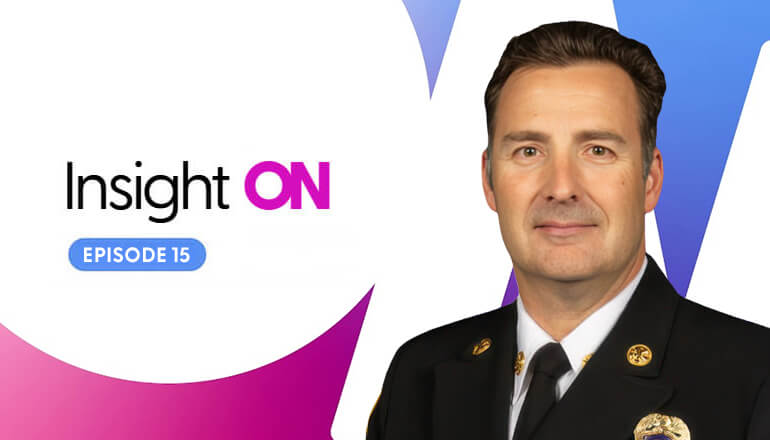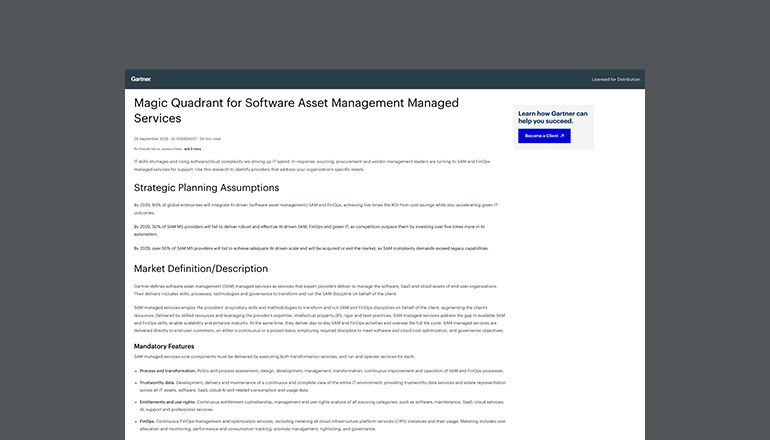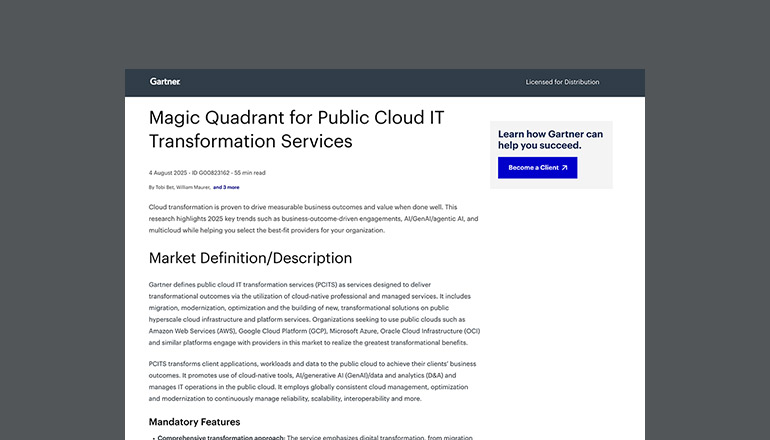Blog Q&A on embracing a DevOps journey

Veli-Matti Vanamo, our Chief Technology Officer for Insight APAC, shares the Insight point of view and his experience in helping customers accelerate and embrace their DevOps journey.
Learn more about Veli-Matti Vanamo
By Insight Editor / 2 Jun 2020 / Topics: DevOps , Featured , Cloud
Q1: Can you share what is your favourite part of working on DevOps?
My favourite part of working on DevOps is to see the cultural transformation for our customers who've embarked on the journey to adopt DevOps practices. The greatest satisfaction for me is to walk in and see the boost in productivity, focus on quality and the true team engagement & happiness I've seen organisations achieve.
Q2: How have you seen DevOps help customers achieve their goals?
DevOps is largely about cultural and operational model change - of course tools are necessary to have a scalable DevOps operating model. My lens on this is through Cloud Transformation initiatives as that is the space that I work in, and I would put the statement out there that you cannot successfully go through a cloud transformation project without adopting DevOps as part of that journey. So the customers I've seen achieve their DevOps goals are largely tied with the overall success of the program, specifically the ability to own, operate and continue to innovate on that cloud platform after the initial project has finished. It's often not clearly stated or understood by customers that the measure of cloud transformation project is in fact 6, 12, 18 months after the project has finished - so this is a strong part of what we advocate. Of course, there have been a number of "pure" DevOps transformation projects we've been a part of, which have for example seen an education software solution provider scale up their deployments from 2 universities per month to a dozen – it is exciting to see clients achieving immediate success, but for me the cloud transformation projects being healthy a year afterwards is a true measure of success.
Q3: Can you speak about Insight’s DevOps approach?
Insight's DevOps journey has been to just adopt it as a core part of how we deliver every project and engage with every customer. For us "DevOps" isn't a project or optional extra in how we deliver Cloud Transformation projects - adopting, embedding and enabling our customers and partners for DevOps is just a non-negotiable thing we do. It's embedded to our DNA from Infrastructure projects to Artificial Intelligence/Machine Learning Projects.
Q4: What challenges are mitigated by adopting a modern DevOps process?
The term, “closing the loop" is referenced a lot when describing a modern DevOps process. Traditionally, organisations use to develop software and run projects through the phases of Plan - Design - Implement - Test. What that always ended up with is a lot of mad scrambling at the end of the project when suddenly someone discovered that a feature didn't quite work the way they had envisaged or the performance was not able to scale, or even worse - there were security risks that suddenly needed to be addressed just before go-live.
DevOps mitigates these and many more risks that often become a reality in transformation projects, especially when dealing with cloud adoption which may be in itself new to an organisation. DevOps process includes Operations (network, security, monitoring, etc) and business stakeholders as a core part of the delivery of the project (software, AI, infrastructure) and delivers in smaller increments that are taken to production constantly as part of an automated process to enable this to be done at scale without significant overhead. This closes the loop and moves towards production-ready state constantly by incorporating feedback and features such as monitoring and alerting from the start of the project. Lessons are learned early, and it's possible to adapt quicker to changing requirements.
Q5: Where do you see customers go wrong when starting this journey?
We still see customers think of DevOps one-dimensionally. All too often DevOps simply means tools for automation. Too often from an Operations background, they think of Azure Policies, Infrastructure as Code, Monitoring and automated deployment tools. And too often Developers think about Pull Requests, Branching strategies, Code workflows and Test-driven development (TDD). And too often Practice Managers / Product Owners forget that DevOps isn't something you just do during a project, and set & forget after go-live.
Truth of course is that DevOps is about all of that, and more, but at its core it is about cultural change to break down silos and change of operating model.
Q6: How are developers impacted when starting a new DevOps process?
For developers adopting DevOps means needing to think about the bigger picture and get comfortable considering monitoring, scalability, networking and security from the start. That's not to say developers don't think about that to begin with, but it's often been codified to us to first get the features developed in a sprint, then do "hardening" and "production readiness" at the end. So the change often starts at the first Plan - Develop cycle of the process, thus Developers are the first impacted by this change. They will need to collaborate closely with networking and operations teams to understand what monitoring, security and isolation features need to be incorporated and thought of from the start. And they need to adopt cultural changes to embrace continuous learning to share lessons learned and collaborate broadly without silos.
Q7: What are some of the greatest benefits customers receive when adopting a modern DevOps approach?
Transparency to progress and timelines, reliability of delivered software of projects, trust throughout the business and a lot less sleepless nights and long hours!








